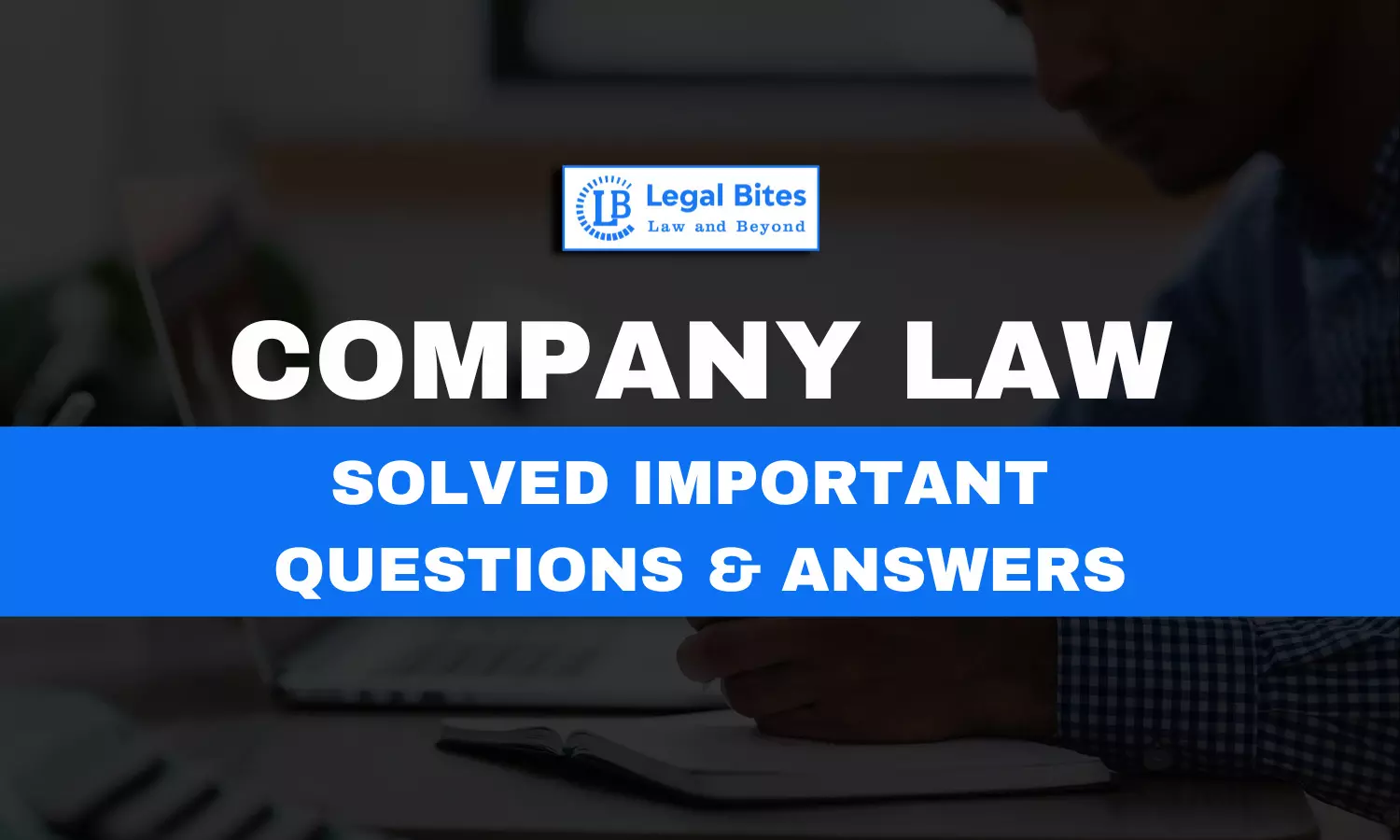A Company created a floating charge on its assets in favour of a bank, B & Co., in consideration of a present advance of Rs. 50,000. Within a year the Company went in liquidation. Discuss the rights of B & Co., the Bank as a creditor of the company in the winding up proceedings.
Find the question and answer of Company Law only on Legal Bites.

Question: A Company created a floating charge on its assets in favour of a bank, B & Co., in consideration of a present advance of Rs. 50,000. Within a year the Company went in liquidation. Discuss the rights of B & Co., the Bank as a creditor of the company in the winding up proceedings. [BJS 1984]Find the question and answer of Company Law only on Legal Bites. [A Company created a floating charge on its assets in favour of a bank, B & Co., in consideration of a present advance...
Question: A Company created a floating charge on its assets in favour of a bank, B & Co., in consideration of a present advance of Rs. 50,000. Within a year the Company went in liquidation. Discuss the rights of B & Co., the Bank as a creditor of the company in the winding up proceedings. [BJS 1984]
Find the question and answer of Company Law only on Legal Bites. [A Company created a floating charge on its assets in favour of a bank, B & Co., in consideration of a present advance of Rs. 50,000. Within a year the Company went in liquidation. Discuss the rights of B & Co., the Bank as a creditor of the company in the winding up proceedings.]
Answer
In the event that the company goes into liquidation, the rights of the bank as a creditor will depend on whether the floating charge has crystallised before or after the commencement of the winding-up proceedings. If the floating charge has not crystallised before the winding-up proceedings commenced, then the bank would be treated as an unsecured creditor and would rank equally with other unsecured creditors in the distribution of the assets of the company.
However, if the floating charge had crystallized before the commencement of the winding-up proceedings, then the bank would have a priority claim over the assets covered by the floating charge. The floating charge would have crystallized if the bank had taken steps to enforce its security interest over the assets covered by the floating charge, such as appointing a receiver.
In the present scenario, B & Co. has a floating charge on the assets of the Company in consideration of a present advance of Rs. 50,000. However, the Company has gone into liquidation within a year.
As a creditor of the Company, B & Co. has the right to claim the amount owed to them as part of the winding-up proceedings. However, the priority of B&Co.’s claim will depend on the type of charge that was created.
If the floating charge created in favour of B & Co. is a “fixed floating charge”, then B & Co. will have priority over the unsecured creditors of the Company but will rank behind the claims of any “preferential creditors” such as employees’ salaries and unpaid taxes. A fixed floating charge attaches to a specific asset or class of assets, and the charge crystallizes upon the occurrence of an event, giving the creditor a fixed security interest in the assets subject to the charge.
If the floating charge created in favour of B & Co. is a “floating charge”, then B & Co. will rank behind any fixed charge holders and preferential creditors but ahead of the unsecured creditors of the Company. A floating charge, unlike a fixed charge, does not attach to any specific assets, and the charge only crystallizes when an event specified in the charging document occurs.
The right of B& co. as a creditor in the winding-up proceedings will depend on the nature of the floating charge created in its favour. However, in either case, B & Co. will have the right to enforce its charge over the assets of the Company and recover its debt from the proceeds of the sale of those assets.

Mayank Shekhar
Mayank is an alumnus of the prestigious Faculty of Law, Delhi University. Under his leadership, Legal Bites has been researching and developing resources through blogging, educational resources, competitions, and seminars.
